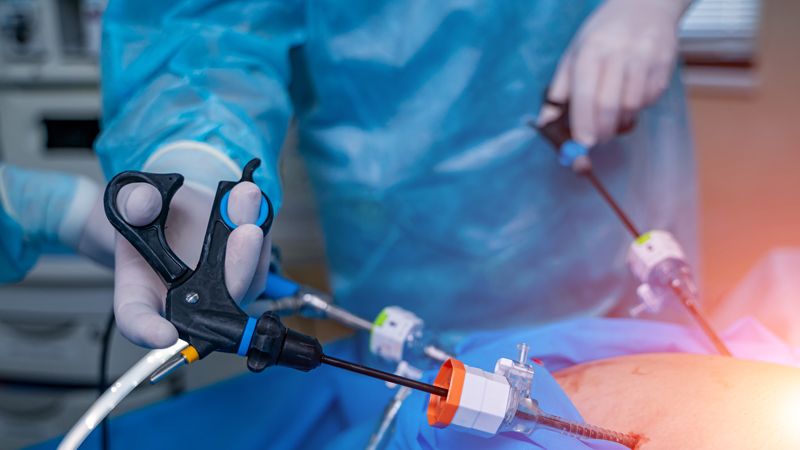Frequently asked questions | Laparoscopy

What is laparoscopy in the context of IVF?
Laparoscopy is a minimally invasive surgical procedure used to diagnose and treat various infertility-related issues, including endometriosis, fibroids, and blocked fallopian tubes.
How does laparoscopy help with infertility?
Laparoscopy allows our fertility specialists to directly view and address problems in the reproductive organs, improving your chances of a successful IVF treatment.
Is laparoscopy a routine part of the IVF process?
Laparoscopy is recommended when specific infertility factors, such as endometriosis or adhesions, are suspected, making it a valuable addition to the IVF journey.
Is laparoscopy a safe procedure for infertility treatment?
Yes, laparoscopy is a safe and minimally invasive surgical technique when performed by experienced fertility surgeons.
What are the typical conditions addressed with laparoscopy during IVF?
Laparoscopy is used to diagnose and treat conditions like endometriosis, pelvic adhesions, uterine abnormalities, and blocked fallopian tubes, all of which can affect fertility.
Is laparoscopy recommended for both men and women during IVF?
Laparoscopy is primarily performed on women to address reproductive organ issues, while other diagnostic methods are used for men.
When is laparoscopy performed during the IVF process?
Laparoscopy is usually scheduled before starting IVF treatment to identify and address any potential obstacles to conception.

Consult a Fertility Expert at Samarth IVF
Right guidance and correct treatment matters! Get in touch with one of our IVF experts today.
How long is the recovery period after laparoscopy?
Most patients experience a quick recovery after laparoscopy, with minimal discomfort and a return to normal activities within a few days.
Can laparoscopy improve IVF success rates?
Yes, by addressing underlying issues like endometriosis or fibroids, laparoscopy can significantly enhance IVF success rates.
Are there any risks associated with laparoscopy for IVF?
Laparoscopy is a safe procedure, but like any surgery, it carries minimal risks, which your fertility specialist will discuss with you.
What is the role of laparoscopy in diagnosing infertility causes?
Laparoscopy provides direct visualization of the reproductive organs, helping to pinpoint the causes of infertility for more accurate treatment.
Does laparoscopy help with unexplained infertility?
In some cases, laparoscopy can uncover underlying issues contributing to unexplained infertility, leading to more targeted treatment.
Is laparoscopy always necessary before IVF?
Laparoscopy is recommended in specific cases when there are indications of reproductive organ issues, but it’s not a mandatory step for all IVF patients.
How long does a typical laparoscopy procedure last?
The duration of laparoscopy can vary, but most procedures last between 45 minutes to several hours, depending on the complexity of the case.
Can laparoscopy improve the overall IVF experience?
By addressing and resolving infertility factors, laparoscopy can enhance your IVF journey, increasing the likelihood of a successful pregnancy.
Website Designed & Developed by

